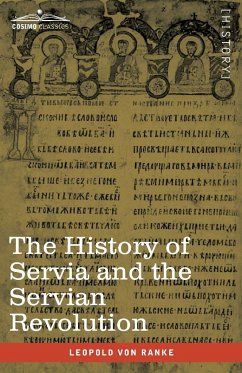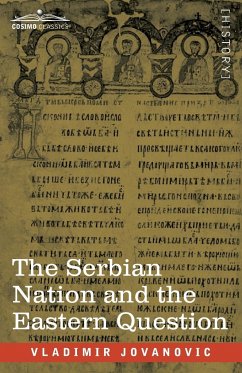"Serbia is, in her own way, a Constitutional State, and the only one in the East that has progressed steadily, unceasingly, evidently." -Elodie Lawton Mijatovi¿, Preface 1872 After centuries of Ottoman occupation, the history of modern Serbia begins in 1804 with the First Serbian Uprising, followed by the Second Serbian Uprising in 1815 and autonomy in 1829, which made Serbia semi-independent from Turkey. Serbia's first constitution was adopted in 1835. British writer Elodie Lawton Mijatovic wrote about this period from 1804 till 1872 in The History of Modern Serbia (1872), in which she also covered the fascinating history of the two competing Serbian dynasties, those of Karadjordjevi¿ and of Obrenovi¿. The leader of Serbia during the First Serbian Uprising and founder of his dynasty was Karadjordje Petrovi¿, who was assassinated in 1817. The Obrenovi¿ dynasty came to power through the leadership of Milos Obrenovi¿ in the Second Serbian Uprising and ruled Serbia from 1815 to 1842, and again from 1858 to 1903. The Karadjordjevic dynasty subseqently ruled Serbia from 1903 to 1945.
Hinweis: Dieser Artikel kann nur an eine deutsche Lieferadresse ausgeliefert werden.
Hinweis: Dieser Artikel kann nur an eine deutsche Lieferadresse ausgeliefert werden.








